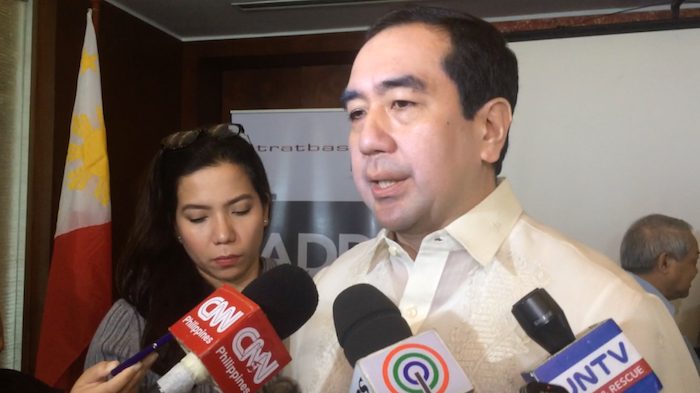SUMMARY
This is AI generated summarization, which may have errors. For context, always refer to the full article.

MANILA, Philippines – Commission on Elections (Comelec) Chairman Andres Bautista said on Friday, May 19, that the poll body is eyeing early voting in future elections.
“One of the things that we’re looking at – and in fact, there is a pending bill in Congress – is the introduction of early voting, which is done in other countries such as [South] Korea. In Australia, it’s also being done,” Bautista said during a forum in Makati City on the conduct of the 2016 elections.
Early voting is similar to absentee voting in that the voters are allowed to cast their votes ahead of election day.
However, Comelec spokesperson James Jimenez explained to Rappler in a text message that early voting “as practiced, say in the US, is open to the general public. Basically, anyone who wants to vote without waiting for election day.”
This is different from absentee voting, where it has thus far been used “to refer to early voting by specific voter groups, such as government employees doing election service, overseas Filipinos, and the media [practitioners],” said Jimenez.
Bautista narrated how early voting is done in South Korea, which had its presidential election on May 9 to choose a new president after the ouster of impeached leader Park Geun-hye.
“They had a system of early voting 5 days before. For two days, May 4 and 5, you could vote anywhere in Korea. You didn’t have to vote in your actual polling center,” he said.
“What will happen was that you would go to the polling centers open, present your ID, they would scan the ID to find out [if] you were in their integrated national database, and then they would print a ballot then and there, so that you could vote immediately.”
If early voting is implemented in the Philippines, Bautista said there would be challenges. “Just aside from the logistical and resource challenges, because this will entail costs and additional training… It will need for us to come up with the right guidelines.”
Early voting for PWDs, seniors
Meanwhile, on Wednesday, May 17, the committee on suffrage and electoral reforms in the House of Representatives recommended to the plenary, House Bill 5661, which provides for early voting by qualified senior citizens and persons with disabilities (PWD) in national and local elections.
The said measure allows PWDs and the elderly to cast their ballots in accessible establishments designated by the Comelec within 7 working days before election day.
“That can help decongest the polling centers on election day,” Bautista said on Friday.
A Congress press release in February 2017 also noted that early voters can vote for national and local candidates, compared to local absentee voters who can only vote for national positions.
If enacted into law, a nationwide registration will take place for senior citizens and PWDs who wish to avail of early voting privileges. Otherwise, they may still vote on election day.
HB 5661 was a substitute for 9 similar House bills on the matter, according to the committee report on the bill.
‘Better managed’ 2016 polls
Bautista shared the idea for early voting during a forum organized by Stratbase ADR Institute and Democracy Watch on Friday.
Dr Francisco Magno of ADR Institute presented the results of a study, co-written by Danica Ella Panelo, on the 2016 elections.
Magno said that the 2016 polls were “better managed” compared to the past automated elections in 2010 and 2013, citing among others the quicker transmission of election results, the conduct of presidential and vice presidential debates, transparency efforts such as voter receipts, and other improvements in election services such as more accessible polling places and voter registration in malls.
Magno also noted the nearly 82% turnout in last year’s polls, attributed in part to a high level of interest in the electoral contest and competitive races in national elections.
He then listed down several actions that could be taken to further improve the country’s election system, such as:
- Intensify efforts “to fully utilize social media to reach the youth and encourage their participation in elections”
- Consider alternative registration procedure for IPs and PWDs
- Improve RMA protocols and source code review procedures
- Designate a 4th poll official in busier polling precincts
- Restore the 2016 election results website
– Rappler.com
Add a comment
How does this make you feel?
There are no comments yet. Add your comment to start the conversation.